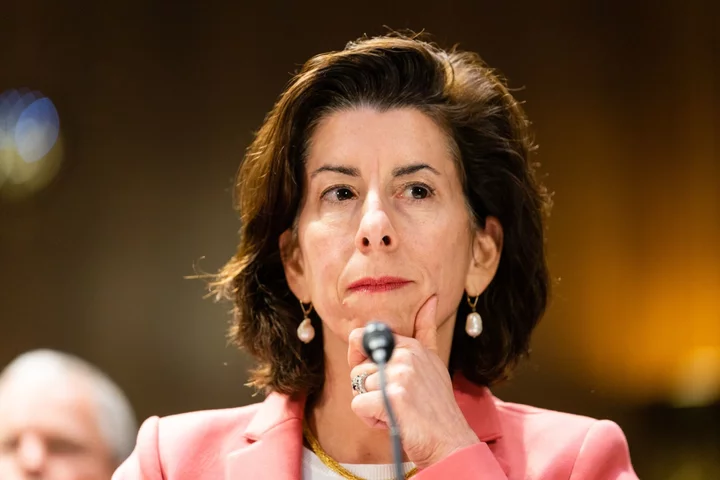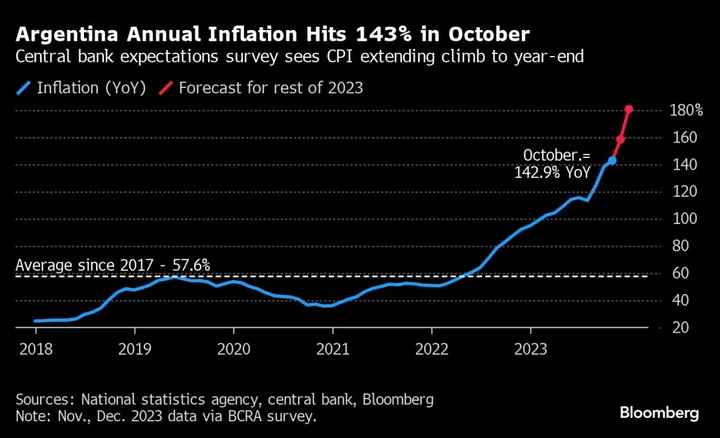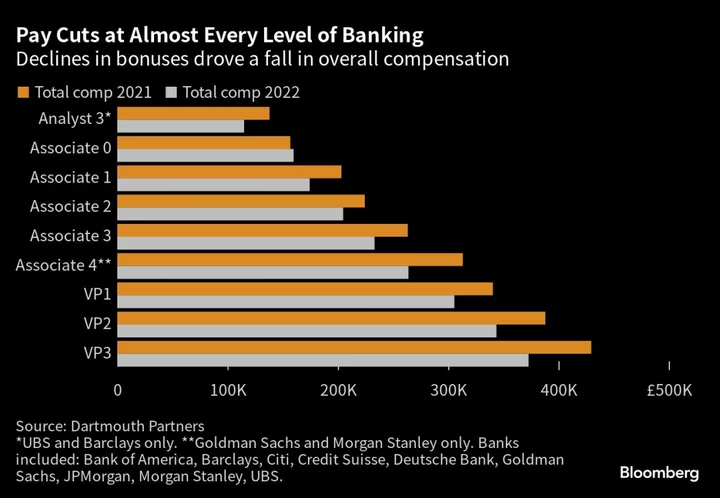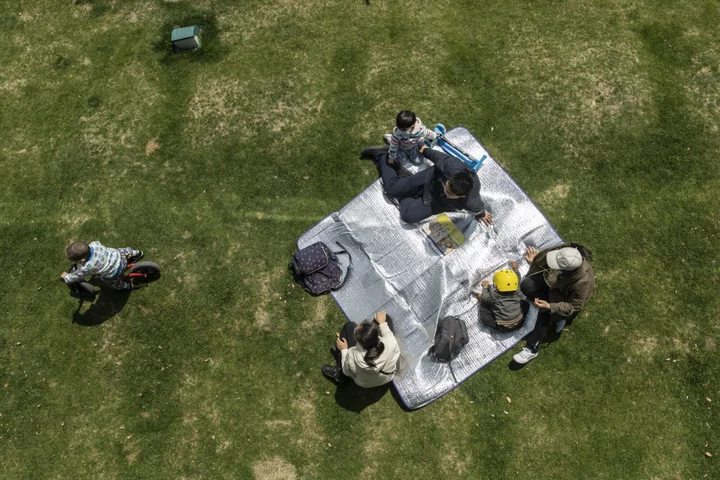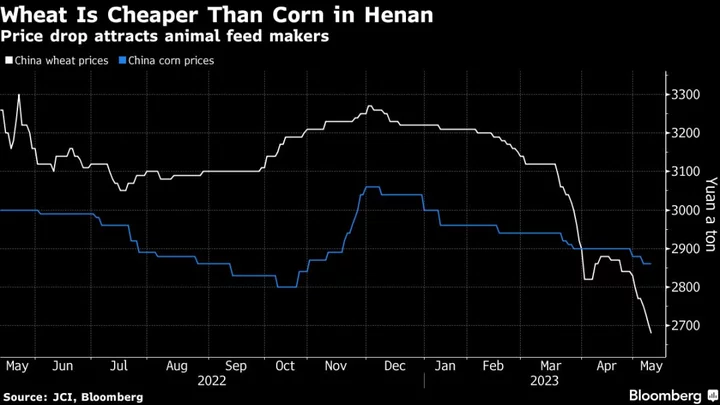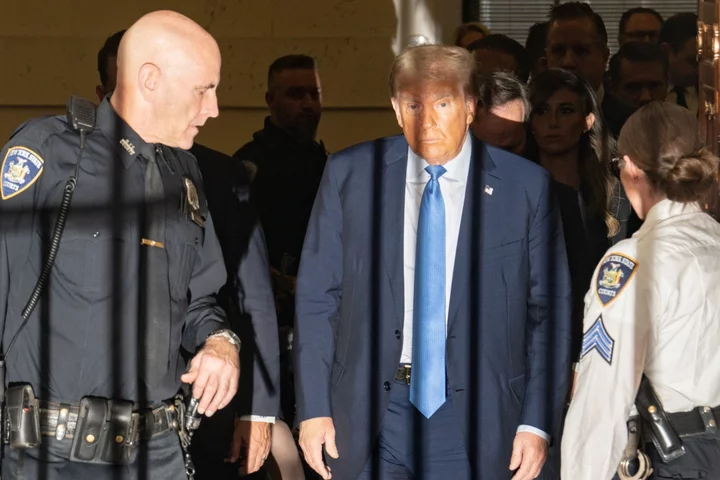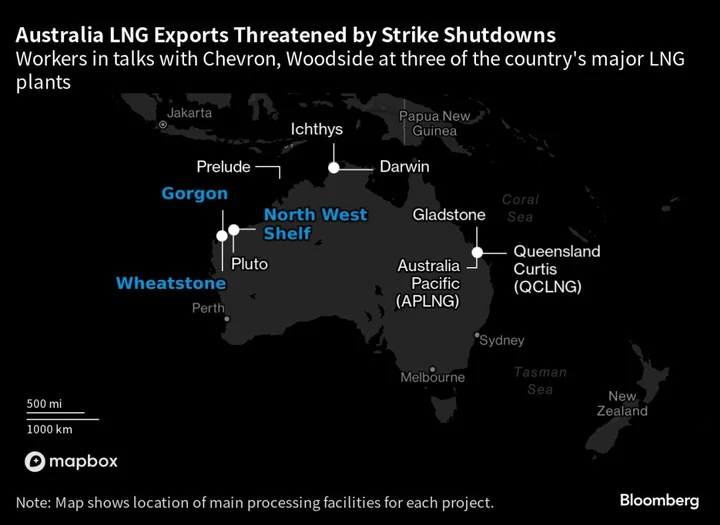US Commerce Secretary Gina Raimondo is in China this week with an aim to improve communication and promote healthy competition, as Washington seeks to expand business ties between the two largest economies even as government relations remain shaky.
The four-day visit — the first by a US commerce chief in seven years — may be the most consequential yet by a Biden administration official because Raimondo’s purview over curbing technology shipments as well as promoting trade puts her at the center of tangible economic issues in US-China relations.
China’s slowing economy may make its officials more receptive to Washington’s message. Yet Raimondo has avoided setting expectations for breakthroughs on core disputes such as export controls, where US curbs on investment in some Chinese tech firms have angered Beijing. China has imposed its own restrictions.
Before departing, Raimondo cited opportunities for commercial partnerships in areas such as travel and tourism, while signaling to her hosts that the US won’t compromise on national security — a message conveyed by Secretary of State Antony Blinken and Treasury Secretary Janet Yellen on earlier visits.
“I’m also very realistic and clear-eyed about the challenges,” Raimondo told reporters ahead of her trip. “I will make clear on this trip, as my colleagues have done, that protecting our national security is first and foremost our top priority.”
Raimondo is expected to announce working groups on export controls and US-Chinese commercial relations, people familiar with the planning have said.
She briefed CEOs on those plans on Thursday, adding that she expects tangible results on intellectual property issues and Boeing Co.’s stalled deliveries of 737 Max planes to Chinese airlines, according to a person familiar with the discussions.
The working-group plans drew a rebuke from Republicans in Congress, who warned Raimondo against allowing China to weigh in on US export policy. Raimondo told reporters she’ll communicate on national security but won’t negotiate.
Her goals are to explain the US export-control regime, raise key commercial issues on behalf of American businesses and labor, promote people-to-people exchange with a focus on travel and tourism, and “expand and strengthen channels of communication between the US and China,” she said in the briefing.
Chinese leader Xi Jinping and US President Joe Biden haven’t spoken since they met during a Group of 20 summit in Bali, Indonesia, in November. That was followed by months of deteriorating relations over incidents from an alleged spy balloon to military encounters in the South China Sea. The two leaders are set to come face-to-face at the G20 summit in India next month, although it’s still unclear whether they will hold a one-on-one meeting.
Raimondo’s visit to China “is critically important given the complexity and challenges in current US-China commercial relations and the rising concerns about the risks and uncertainties American businesses face in the market,” US Chamber of Commerce President Suzanne Clark said.
--With assistance from Jenny Leonard.

